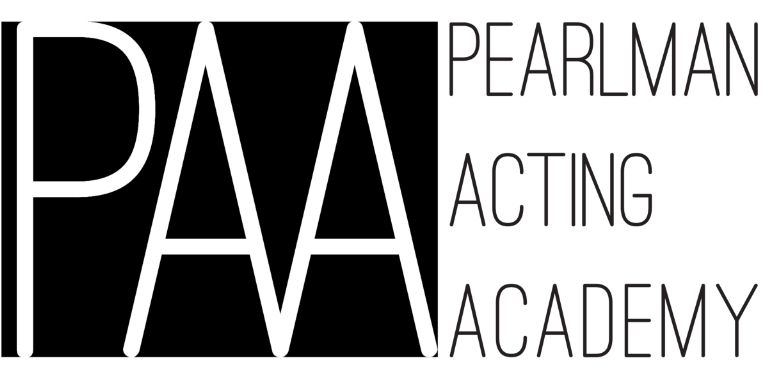Much is spoken about how to conduct yourself properly when you walk into the audition room, but very little has been said about how to survive the psychological minefield of the waiting room. The more you can tune out the distracting and often toxic and sabotaging chit chat of other actors in the waiting area, the better your work will be when you get into the room.
I’m certain many of you have crossed paths with these pre-audition misfits.
1. The Nervous Talker: This is the guy/girl who strikes up a conversation with other actors out of abject terror. These people seem harmless, as they are often friendly and chatty. Their chosen subjects of conversation appear innocuous enough (current events, sports, the weather). However, conversing with them sucks you into their web of anxiety and can indirectly impact your performance.
Solution: Do not engage. A polite “yep” with no eye contact should give them the message. Bring headphones.
2. The Status Signaler: This actor will try to psych you out by letting you know that they are better than you. More accomplished. These are people who talk very loudly about “my time at Juilliard” or “I miss working with Phillip Seymour Hoffman.”
Solution: The key to this person is paying less than zero attention to them. Do not look at them and try to figure out which project they worked on with P.S.H. (it was a short film no one saw; Hoffman did his lines via ADR). Do not wonder if they were at Juilliard when Lupita Nyong’o attended. Do not allow a single brain cell to engage with their blather. Headphones.
3. The Legit Psycho: This person is more toxic than the status-signaler because he/she takes their remarks up to the next level of psychological warfare.
This person might talk about how the cinematographer of the project is their dad, or how they booked their last audition with a black eye and strep throat. They might even throw out something really provocative and head-scratchy like “I once had to give Daniel Day-Lewis a shot of adrenaline in Prague.” They desire attention and know how to get it.
Solution: Ignore this person and the reactions they get from others. This person goes the extra mile to psych out their competition by putting on a show. Some actors in the waiting room are guaranteed to take the bait. Pay no attention, particularly when other actors start to engage with this person, which they almost always will. Headphones.
4. The Helper: This actor may try to throw you off your game by offering you fear-based “advice” based on their limited knowledge of the casting office, the project, the industry as a whole, or what they think will win over the room. This person thinks he/she is being helpful, but it’s really just a buffet table of insecurities. This person is looking for reassurance or someone to join forces in worry. She might say something like, “I wore flats because the lead is already cast and he’s 5’9” or “This office likes a really thrown-away read.”
Solution: A terse “sure” with no eye contact should deliver the message that unsolicited advice is not wanted. If not: headphones.
5. The Omitters: These are some of the most common people you’ll encounter. There might be a last minute change to the prepared sides (“everyone just read page 2!!” or “we are doing cold reads with new sides”) that has been announced to everyone in the waiting room. You arrive and have missed the announcement from the CD or the session runner. As you sign in, the session runner might be busy or stepped away, and all the waiting room actors look at you, knowing that you need the new instructions. However, no one says a damn thing.
Solution: Do a cursory check with the session runner or casting associate as soon as you can (“Hi, any changes to the prepared material I should know about?")
6. The Office BFF: This actor likes to pretend they are the good buddy of the casting or production office. They greet the session runner like they’re old friends and often make reference to previous (wild) social engagements (“Next time let’s get our own strippers and helicopters!”). This person will refer to the CD by their first name, often shortened (“How’s Nance doing?”) or might have a nickname for the casting director (“Jimbo’s new little girl is precious!”).
Solution: Redirect your attention away from this person and the elaborate dance they are doing. If not: headphones.
These other actors and the noise they make should be as threatening to you as a determined mosquito. Your protection is your preparation: it should be accessible in flash, as if on the tips of your fingers. When your preparation is solid and simple, you have the freedom to show production/casting who YOU are a person before you start acting. You must walk in with the understanding that your personality may be the very thing that gets you the job before any acting takes place. If your success is dependent on a technique that requires you to fluff yourself up in the waiting room before you go in, you’re going to be vulnerable to these mosquito-actors.
You wouldn’t try to make friends at the baggage claim carousel at the airport. Take that same mentality to the audition waiting room: a bare minimum of politeness, with little to no words exchanged at all. If you have a solid preparation and a great final choice for your audition then you are impenetrable. You simply get to live off of the interest of your preparation. Just put on your headphones and tune out the waiting room.
This article was originally posted on Backstage.






